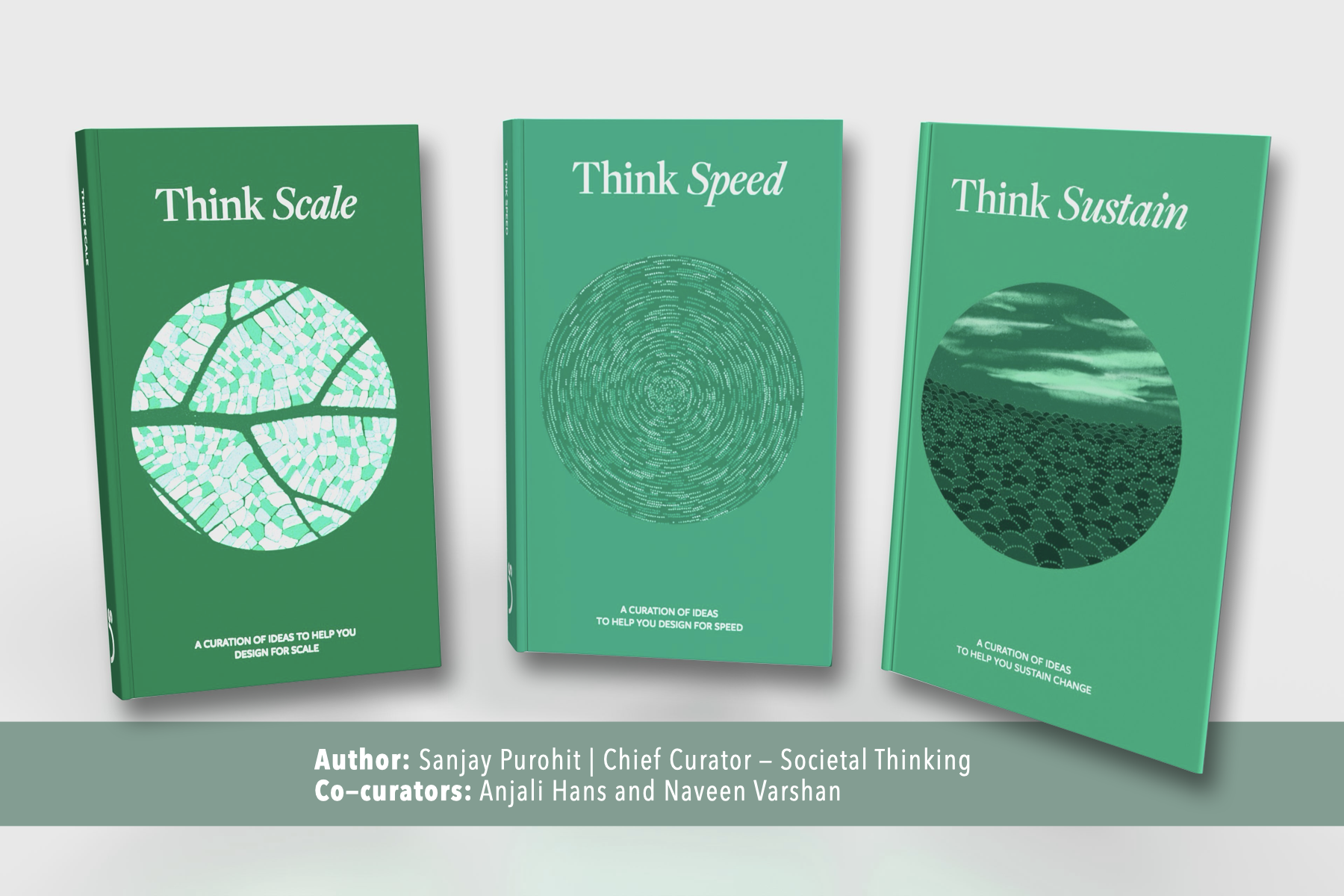Once Upon a Time
Urban governance in India is fraught with challenges of access, transparency and timely problem resolution. In 2003, eGovernments Foundation (eGov) was set up to provide quality citizen-centric public services across the country. In the first eighteen years of eGov’s quest to transform urban governance, improve citizen interaction and enable smart cities, they invested resources in building specific solutions for specific municipalities. While their approach to dig deep in the context of each city and design local solutions saw success in areas such as Chennai, Nagpur and Delhi, they didn’t find it to be fast enough or large enough to cover the breadth of the problem they were trying to solve. It was, moreover, a resource- and time-intensive approach.
eGov was faced with a big question: What would it take to induce exponential impact in over 4,000 cities and towns across India, each with its unique social issues and local processes?
Enter eGov 2.0
A problem as large and dynamic as urban governance needs multiple actors to come together and solve. This led eGov to wonder if, instead of solving all issues by themselves for every ULB, could they enable diverse actors across governments, civil society and markets to co–create solutions. If so, what would they need to build to enhance the capacity of these actors?
India was making fast progress in using digital platforms to make services easily accessible for a large set of people. eGov wondered if they could leverage the platform approach to make urban governance smooth and transparent for all citizens in India, fast?
This was the impetus behind the conception of the Societal Platform DIGIT (Digital Infrastructure for Governance, Impact & Transformation). DIGIT, a public good, is an open, free-to-use and interoperable platform that allows developers, enterprises, governments and citizens to build new applications and solutions quickly. The ready-to-use platform helps achieve quicker implementation timeframes and helps local governments achieve process improvements, accountability and transparency at various levels of administration.
DIGIT can be used by a diverse range of actors to customise and apply solutions to their context across a range of service areas such as water connections, trade licences, obtaining certificates, building plan approvals, payment of municipal taxes, resolution of civic complaints, etc. At the same time, actors can innovate on top of the platform’s building blocks and add solutions for newer and unique problems.
DIGIT, thus, shares the ability to solve and restores the agency of all to see, sense and solve the issues they face.
The Digital Public Goods approach
For eGovernments Foundation, building DIGIT signified letting go of control and allowing multiple actors to take ownership of a larger unified cause. However, building trust in the ecosystem in a Digital Public Goods driven model wasn’t immediately easy.
The Punjab Municipal Infrastructure Development Company (PMIDC) had been trying to introduce an e-governance system across 167 ULBs since 2012. It faced many barriers to implement this because of technical constraints and the high financial load of about ₹200-300 Cr.
In 2018, the Government of Punjab partnered with eGov to implement DIGIT in 167 towns and cities in the state. Over the next 90 days, 100 Urban Local Bodies were brought onto the platform. Come January 2019, DIGIT was implemented across the state. As DIGIT already had most of the required components and applications needed, this approach freed up resources to focus on critical non-technology elements like program management, governance and capacity building.
In only three years, it saved the government time and money (coming up to only 1/8th of the cost of a point solution) and, at the same time, enhanced ease and speed in accessing government services.
Punjab’s example charged up the ecosystem to take a leap of faith. In no time, 10 other states adopted DIGIT.
In March 2020, the COVID-19 pandemic lockdown restricted travel, marring the delivery of essential goods and services to citizens. In these unforeseen circumstances, eGov was able to use DIGIT to create a National Covid ePass system within 72 hours. This could be used by local authorities to issue passes for the employees of products and service providers. The passes could be verified on-ground with an SMS service or a QR code scan. In just two weeks, eight states were using this infrastructure. In the following 60 days, over 9 lakh e-passes were issued!
Catalysing the ecosystem
eGov now works with all ecosystem actors through open learning sessions, workshops, webinars and hands-on training to boost co-creation and co-ownership. They partner with more than 10 state governments to build capacity and design programs. At the central government level, eGov helps in bridging policy, digital blueprints and governance structures. Together, the efforts of eGov and the ecosystem enable impact at scale and with speed.
Citizens are the focal point of eGov’s work, imbuing them with the power to say, “I can be an active participant in bringing about change”. With eGov’s platform, citizen involvement in urban governance in Andhra Pradesh rose dramatically. From receiving 12,500 service requests and 15,000 grievances a year to now three hundred thousand and ~1 lakh respectively, the positive loop generated by eGov by empowering citizens to be a part of problem-solving has sparked exponential impact. Moreover, Andhra Pradesh ranked first for quality of life in the Ease of Living Index in 2018!

(eGov’s impact, as of April 2022)
It was the Digital Public Goods approach that allowed eGov to unlock the capabilities of the ecosystem. As different actors come together to build and solve, the possibilities of impact become magnified and sustainable. This is the approach eGov wants to take to enhance the ease of living in the Global South and enable societal transformation in 30 countries by 2030.
Learn more about Societal Thinking here.
 Back
Back


